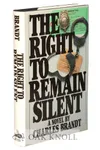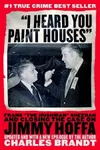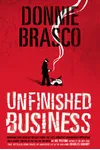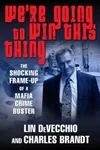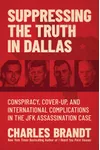Picture a gritty Staten Island storyteller who turned the shadowy world of organized crime into a cinematic masterpiece—meet Charles Brandt! A former homicide investigator and lawyer, Brandt didn’t just write about the mob; he lived among its echoes, crafting true-crime narratives that pulse with authenticity. His most famous work, I Heard You Paint Houses, became the backbone of Martin Scorsese’s The Irishman, hooking readers and viewers with its raw, unflinching look at loyalty, betrayal, and blood-soaked secrets.
Brandt’s life was a thrilling blend of law and literature, shaped by his knack for getting confessions and his passion for storytelling. From prosecuting killers to penning bestsellers, he brought a prosecutor’s precision and a novelist’s flair to the page, making him a standout in true-crime fiction.
The Making of Charles Brandt
Born on March 13, 1942, in Staten Island, New York, Charles Peter Brandt grew up in a world far from the mob’s glamour. Raised in Staten Island and Queens, he attended Stuyvesant High School before studying at the University of Delaware and earning a law degree from Brooklyn Law School. While in law school, Brandt worked as a welfare investigator in East Harlem, a hotbed of organized crime, where he glimpsed the underworld’s raw edge. By 1969, he was prosecuting homicides in Delaware’s Attorney General’s office, later rising to Chief Deputy Attorney General. His knack for interrogation—rooted in a belief that people yearn to confess—shaped his legal career and his writing, giving his books an insider’s edge.
Charles Brandt’s Unforgettable Stories
Brandt’s writing is a masterclass in true-crime storytelling, blending meticulous research with the pulse of a thriller. His breakout, I Heard You Paint Houses (2004), chronicles the life of Frank “The Irishman” Sheeran, a hitman who confessed to killing Teamsters boss Jimmy Hoffa. Based on five years of taped interviews, the book’s title—a mob euphemism for murder—sets the tone for its chilling dive into loyalty and violence. Its adaptation into The Irishman (2019), starring Robert De Niro and Al Pacino, cemented Brandt’s place in pop culture.
Beyond I Heard You Paint Houses, Brandt co-authored Donnie Brasco: Unfinished Business (2008) with FBI agent Joe Pistone, peeling back layers of the Mafia’s downfall. We’re Going to Win This Thing (2012), written with FBI agent Lin DeVecchio, exposes the Mafia Commission case that crushed organized crime’s leadership. His final work, Suppressing the Truth in Dallas (2022), dives into JFK assassination conspiracies, showcasing Brandt’s knack for weaving history and crime. His style—conversational yet precise, with historical context—makes complex criminal worlds accessible and gripping.
Why Charles Brandt Matters
Charles Brandt’s work transcends true-crime tropes, offering a window into the moral ambiguity of crime and justice. His books don’t just recount events; they probe the human cost of loyalty and betrayal, drawing readers into the minds of killers and cops alike. By solving mysteries like Hoffa’s disappearance, Brandt reshaped how we understand organized crime’s reach, influencing filmmakers and readers worldwide. His legacy lies in his ability to humanize the inhumane, making the mob’s shadowy world both thrilling and hauntingly real.
- Born: March 13, 1942, Staten Island, New York
- Key Works: I Heard You Paint Houses, Donnie Brasco: Unfinished Business, We’re Going to Win This Thing, Suppressing the Truth in Dallas
- Notable Achievement: I Heard You Paint Houses adapted into The Irishman, directed by Martin Scorsese
- Died: October 22, 2024, Wilmington, Delaware
Snag I Heard You Paint Houses and dive into Charles Brandt’s thrilling world of true crime—where every page feels like a confession!
